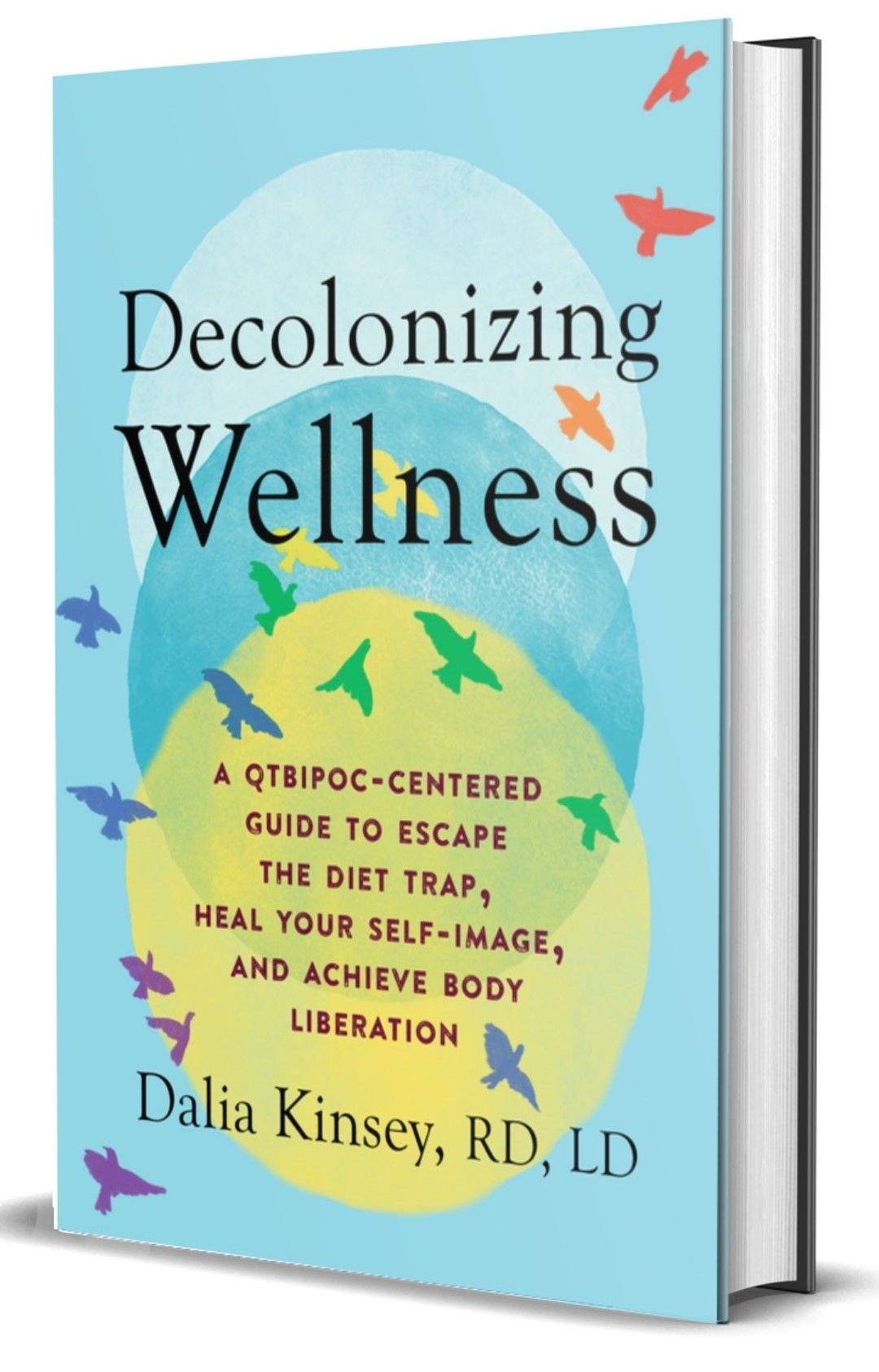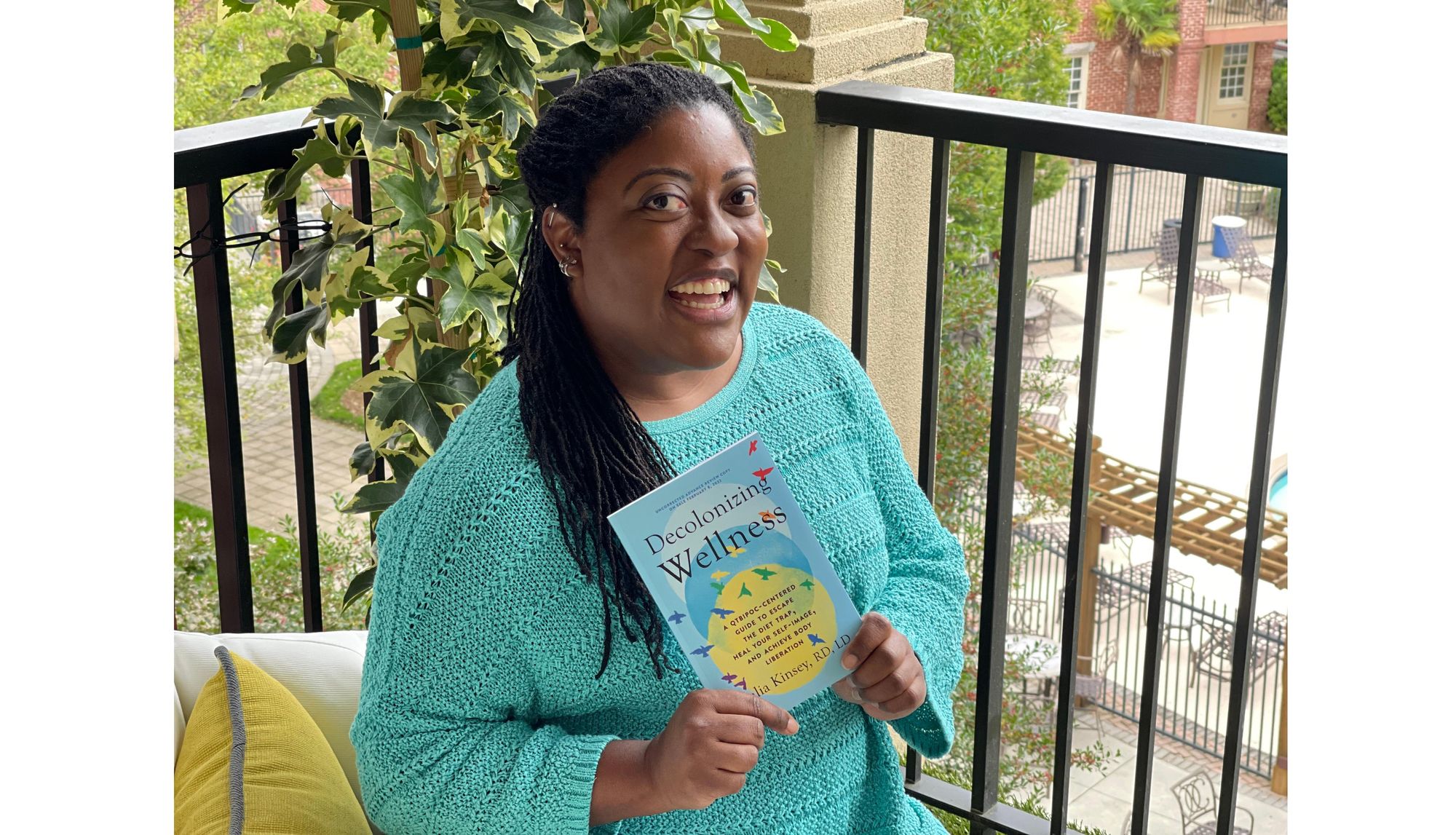Interested in starting your own entrepreneurial journey in health and wellness but unsure what to expect? Then read up on our interview with Dalia Kinsey, founder of Kinsey Wellness & Communications LLC., located in Atlanta, GA, USA.
What's your business, and who are your customers?
My work is centered on eliminating health disparities for QTBIPOC (Queer, Trans, Black, Indigenous, and People of Color). My company, Kinsey Wellness & Communications LLC, takes a two-pronged approach to doing things - we offer holistic health coaching and wellness retreats that center on the needs of LGBTQIA+ and People of Color, and we offer Diversity, Equity, and Inclusion training for health care and wellness providers.

Tell us about yourself
I am a Registered Dietitian, host of the Body Liberation for All podcast, and author of the Decolonizing Wellness: A QTBIPOC-Centered Guide to Escape the Diet Trap, Heal Your Self-Image, and Achieve Body Liberation. On my mission to spread joy, reduce suffering, and eliminate health disparities in my QTBIPOC (Queer, Trans, Black, Indigenous, People of Color) community, I teach people to use nutrition as a self-care and personal empowerment tool.
While everyone is welcome at my practice, I’m dedicated to amplifying the health and happiness of BIPOC (Black, Indigenous, and People of Color) and LGBTQIA+ (lesbian, gay, bisexual, transgender, queer, questioning, intersex, and asexual/ aromantic/ agender) folks, and center my content accordingly.
The way the mainstream wellness industry addresses health doesn't serve folks of color. The obsessive focus on weight and policing Black and brown bodies only adds to the long list of things weighing on our minds.
And while it is true food can be medicine, you can’t green smoothie away the damage of unrelenting stress and low-grade terror that you will be attacked, humiliated, or harmed at any moment for simply existing. Wellness for queer folks and folks of color has to be holistic, addressing and defending us against the extra stress of systemic oppression.
I first applied to enter the nutrition program at Georgia State University because I wanted to help underserved people improve their health outcomes and reduce risk through dietary change and weight management. At the time of my program, I was young and thin. I bristled at the racial microaggressions I dealt with every day but never thought to question the fatphobia that was evident throughout my studies.
In my mid-twenties, I became severely ill. Fighting through the process of getting to the root of what was causing my hair to fall out in clumps, excessive sweating, hand tremors so severe that I couldn’t hold a pen, and fatigue that made me fall asleep behind the wheel after 10+ hours of sleep, taught me unforgettable lessons about how deeply inadequate health care can be when it comes to supporting folks of color in a health crisis.
Visit after visit, physicians blamed my steadily increasing weight for my symptoms, repeatedly failing to offer me an individualized treatment, and getting stuck on my skin color and body size. After years of effort, I have eventually diagnosed with Grave’s Disease, a chronic autoimmune condition. While my weight had nothing to do with my symptoms, weight bias and racist assumptions about the ability to care for myself almost cost me my life. Fatphobia, racism, homophobia, and misogyny have real-life consequences for our health.
The parting advice I received from the diagnosing physician once I entered remission was to “avoid stress” so that I could stay in remission. When George Floyd was murdered, and I found myself simultaneously living through the second wave of the civil rights movement and a global pandemic, I was overwhelmed by anxiety and heartbreak.
I looked everywhere for information to help me navigate dealing with chronic stress that never ends. Every resource I found only addressed temporary stressful events, like a move, a job change, or the end of a relationship – events that anyone can experience.
I couldn’t find a single resource that addressed how to manage the relentless stress that Black, AFAB (assigned female at birth), and queer folks like myself experience because of racism, homophobia, and misogyny. The process of developing my own framework for protective self-care has led my business to where it is today.
I welcome everyone into my practice, but I center on the most vulnerable because people with marginalized identities deserve care that is tailored to our unique lived experiences and powerful enough to support our healing.
What's your biggest accomplishment as a business owner?
Being published! I am thrilled to have an accessible entry point to working with me on bookshelves.
What's one of the hardest things that come with being a business owner?
Learning to tolerate risk and uncertainty has been tough for me personally.
What are the top tips you'd give to anyone looking to start, run and grow a business today?
- Take a serious inventory of what makes you feel unsafe in your business. The safer you feel on a day-to-day basis, the more creative you will have the capacity to be. Consider limiting how much your push yourself beyond your comfort zone as your confidence increases.
- Envision a sustainable work-life that supports your social and emotional life so that you can avoid rebuilding the same toxic conditions you deal with in 9-5 settings.
- Keep checking in with the people you serve. Sometimes what we think our customers want is off. Customer feedback is a priceless resource.
Where can people find you and your business?
Website: https://www.daliakinsey.com/
LinkedIn: https://www.linkedin.com/in/daliakinsey/
If you like what you've read here and have your own story as a solo or small business entrepreneur that you'd like to share, then please answer these interview questions. We'd love to feature your journey on these pages.
Turn your craft into recurring revenue with Subkit. Start your subscription offering in minutes and supercharge it with growth levers. Get early access here.
